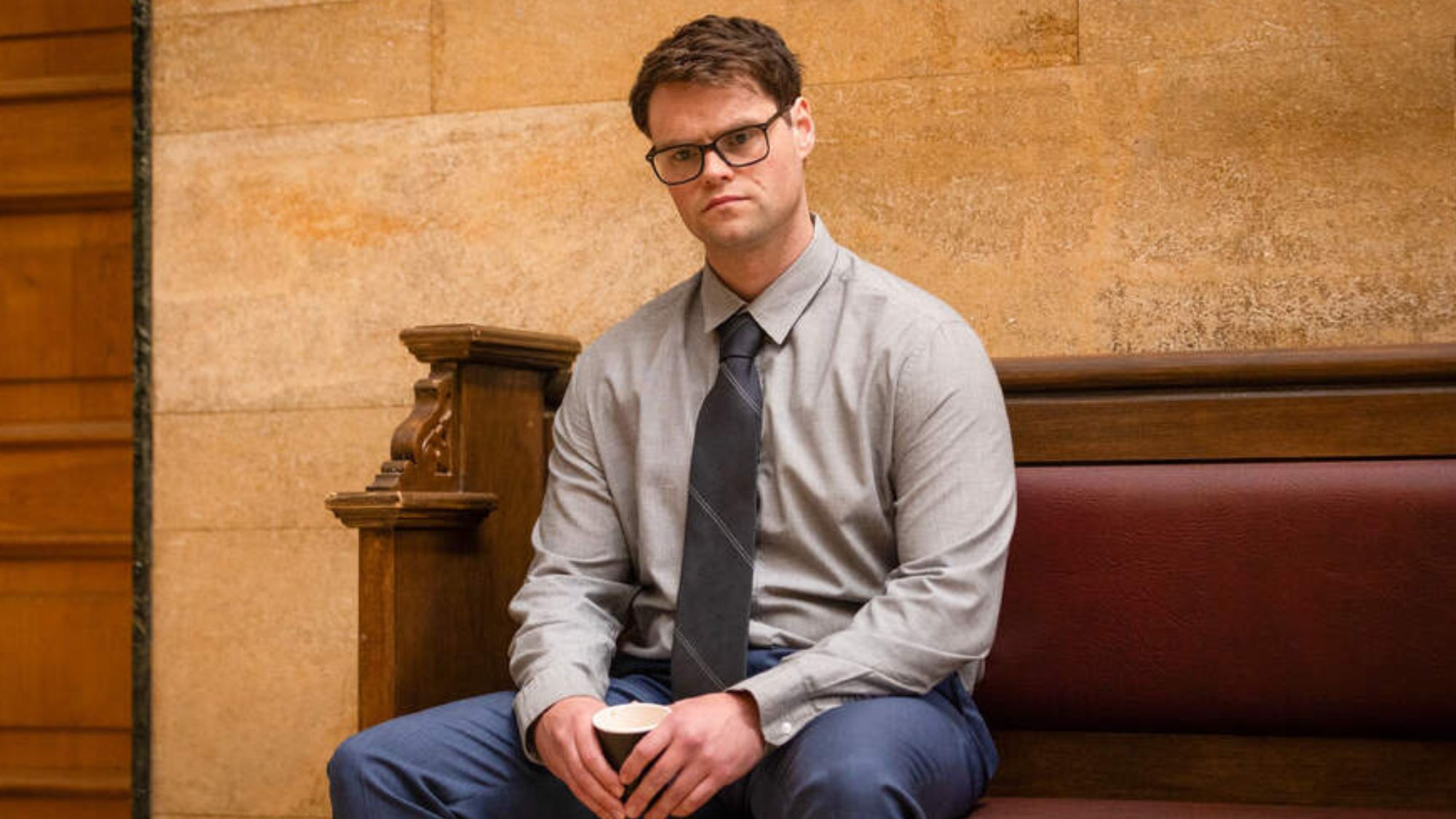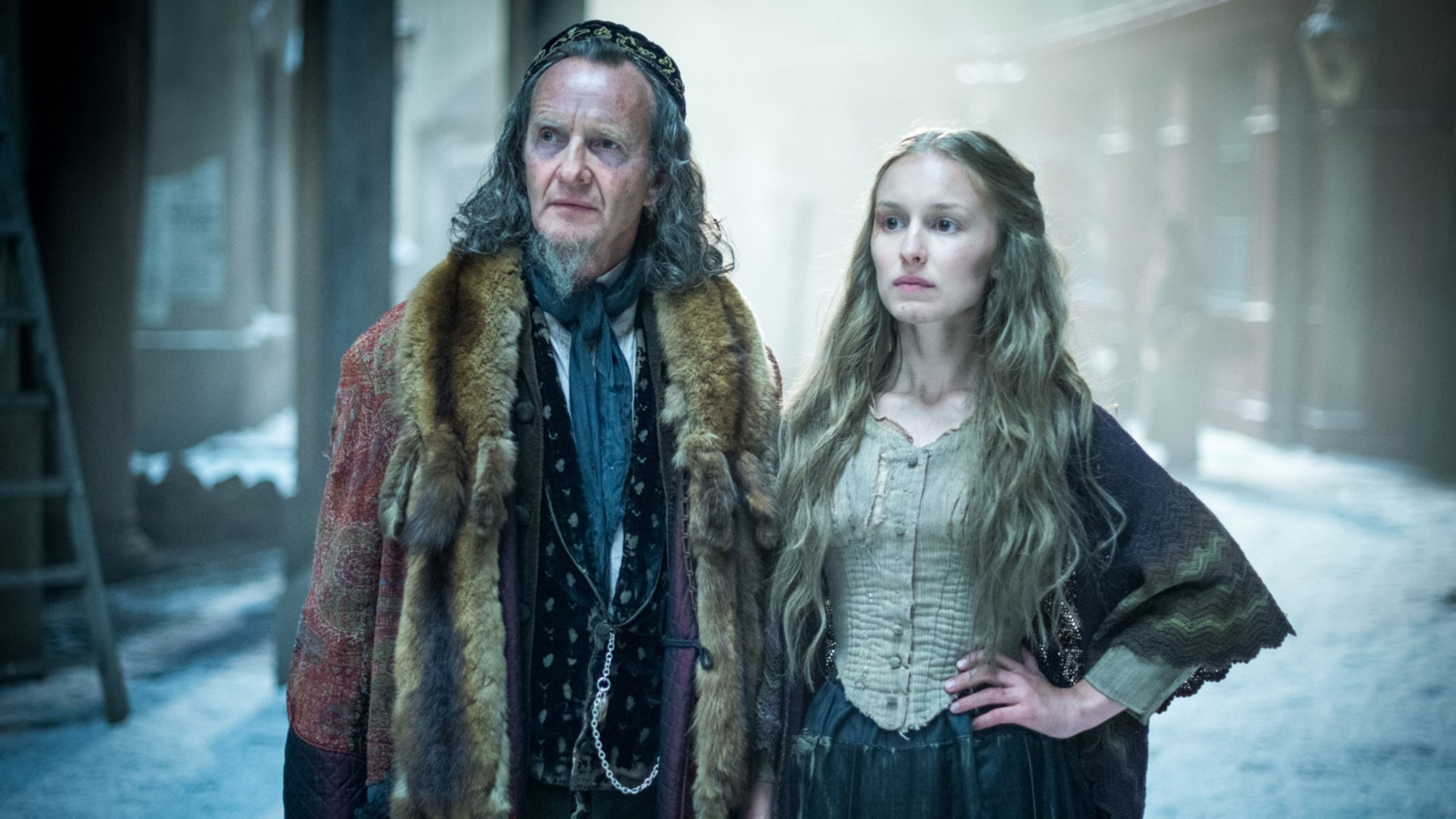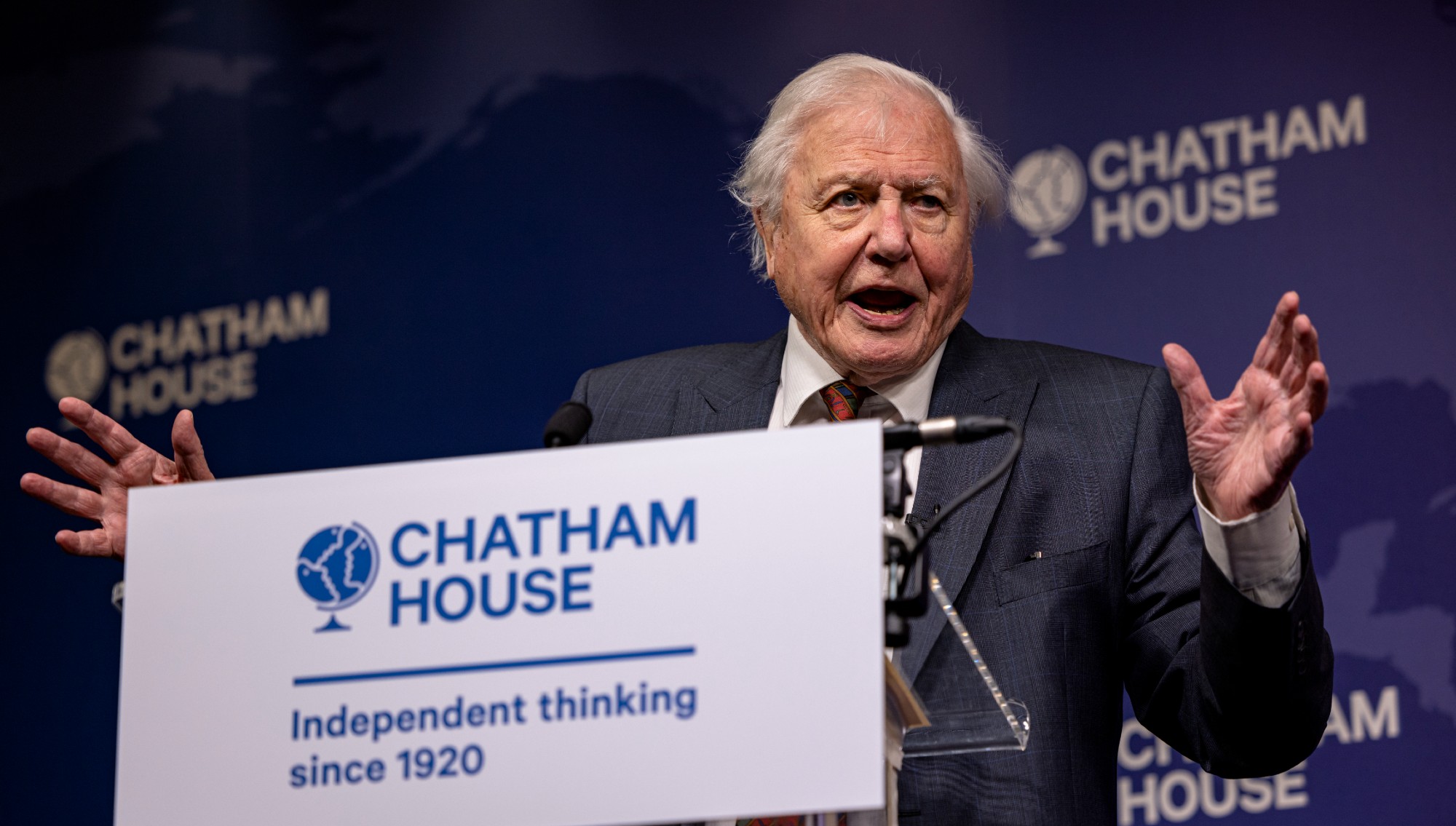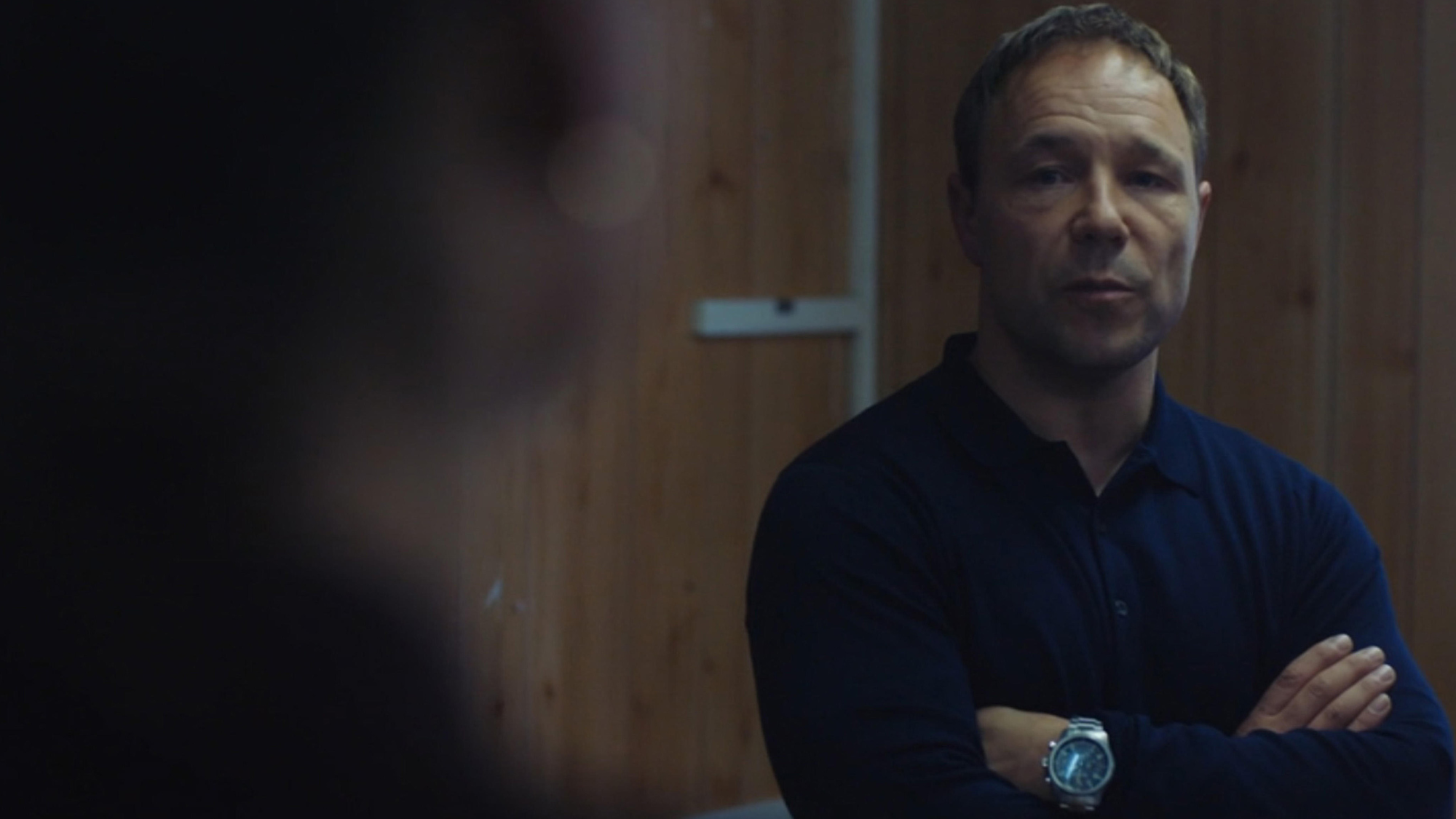Robot Wars 2017: Is new series winning over critics?
Little change to the 'winningly whacky format' should please fans as the battles recommence

A free daily email with the biggest news stories of the day – and the best features from TheWeek.com
You are now subscribed
Your newsletter sign-up was successful
Robot Wars 2016: Everything you need to know about the new series
21 July
Twelve years after it was part of Channel 5's schedules, Robot Wars is back – and returning home to the BBC this Sunday.
The technological game show's heyday saw first Jeremy Clarkson then Craig Charles preside over both amateur and professionally built machines battling it out in the arena while avoiding hazards and the more powerful house robots.
The Week
Escape your echo chamber. Get the facts behind the news, plus analysis from multiple perspectives.

Sign up for The Week's Free Newsletters
From our morning news briefing to a weekly Good News Newsletter, get the best of The Week delivered directly to your inbox.
From our morning news briefing to a weekly Good News Newsletter, get the best of The Week delivered directly to your inbox.
"Bringing back Robot Wars wasn't like starting up a quiz show and putting out an appeal for contestants," O'Briain told The Guardian. "This is the top level of a pre-existing robotic MMA tournament that is ongoing. We are basically televising the heavyweight division."
So what's in store for viewers in 2016?
What's new?
A lot - but also, not very much at all. The six-part series promises a "raft of technological advances", says the Daily Telegraph, as well as a new purpose-built fighting arena in Glasgow.
A free daily email with the biggest news stories of the day – and the best features from TheWeek.com
State-of-the-art cameras capable of capturing every "saw, claw and flame-thrower will allow viewers to feel even closer to the action than before", says The Guardian.
Alan Tyler, BBC acting controller of entertainment commissioning, said: "It is remarkable to see how much more powerful these robots have become since the series last aired, with battles now staged in an arena that is literally bulletproof, and yet, the show is still fundamentally driven by the eccentricity of the brilliant brains behind the machines."
Technological advances over the past ten years mean the materials the robots are made with are "stronger and lighter" and the battery power is "much, much stronger", executive director Chris Brogden told RealScreen.
"Without being too technical, the lithium batteries are much smaller, which means that – [in addition to] the materials – the robots are just much more powerful," he said.
In other changes, the new series would be "a little bit more human interest" than in the past, added Brogden.
"Editorially, the update is that we just focused a little bit more on the stories of the people – the builders and the roboteers," he said.
"The battles are fantastic - and the battles are still the focus of it and everybody loves them - but there’s just a little bit more story throughout it."
One new robot to look out for is the unassumingly named Gabriel, says Niki Boyle at Wow 24/7, who was privy to filming. "Only because, in a world of nippy little motorised flippers, the big shiny galoot with a five-foot Perspex axe is a sight to behold," he writes.
Executive producer Andrew Robertson told Digital Trends that the show will embrace the sweeping advances that have taken place in robotics over the past decade.
"Titanium would have been near invincible in the past yet in this series, robots are able to strip it apart like wet wallpaper," he said.
"Flippers were the traditional old-school fighting robot, but now you’ll start to see the arrival of a new breed of fighting robot with Mecanum wheels or incredibly complex engineering. This series feels like we’re seeing the birth of a new generation of super-fighting-robot."
What's this about a 'bulletproof arena'?
As fun as live ammunition would be in an ostensibly family friendly environment, the bulletproof arena is actually due to the speed of some of the robots' spinning discs.
"Effectively you have got bits of shrapnel flying off that are going as fast as bullets," says Brogden. A popular weapon of choice in the original series, spinning discs look set to be a favourite in the reboot, too.
In an interview with the Daily Mirror, new host Dara O'Briain told how the bulletproofing had saved his life: "We were watching one time and these spinner things were going at over 200mph and we saw it bang [the triple bulletproof glass] in front of us – a twisted shard of metal was flung at our windows," he said.
Boyle also confirmed the bulletproof glass was "not entirely for show", saying that at his episode filming, the house robots' "apparent invincibility" did not go untested.
Who will be presenting?
Gone, unfortunately, is the irrepressible Charles, replaced by an all-Irish duo of O'Briain and Angela Scanlon.
O'Briain said he was looking forward to the new gig, telling the BBC: "For too long, the schedules have cried out for a show in which dedicated amateurs, toiling day and night, handcraft sophisticated automatons built on the delicate interplay of hand-wired servo motors with custom-built circuit boards and fingertip motion control, just to see them get smashed to pieces by a dustbin carrying a massive hammer.
"It's war - and how I love it so."
As for stepping into the hefty shoes of the show's past hosts, O'Briain said he had approached presenting the show in a new way.
"Well, the Craig Charles thing, that was 12 years ago," he told the Daily Mirror. "He did a big acting job. You know how Richard O'Brien did the Crystal Maze. It was all swooping of fans and the big leather jacket.
"I did it in a much more sports-event kind of way. There was more investment in the teams."
Scanlon, meanwhile, said: "I'm so excited to be joining such a legendary show that, after all this time, still manages to make people squeal with joy. I cannot wait to see the robots in all their metallic glory playfully destroying each other."
There's also a new selection of judges who will pick a winner if the battle ends in a disappointing draw. Noel Sharkey, Professor Sethu Vijayakumar and Lucy Rogers all have vast levels of robotics experience and, we hope, the ability to not make it sound too boring for TV.
For those for whom the newness is all too much, original commentator Jonathan Pearce will return to provide his tongue-in-cheek insight on the battles themselves.
What about Matilda and the house robots?
The house robots appear not to have changed very much. Dark and shadowy pieces of metal resembling some of the more famous machines are visible in a series of ominous teaser trailers from the BBC's press office.
[[{"type":"media","view_mode":"content_original","fid":"90946","attributes":{"class":"media-image"}}]]
[[{"type":"media","view_mode":"content_original","fid":"90947","attributes":{"class":"media-image"}}]]
The BBC has also announced that deadly knight Sir Killalot is returning to join fellow house robots Matilda, Shunt and Dead Metal. The robots are "descendants of the original show" who have been "evolved and upgraded to modern-day standards to be even more impressive and even more menacing", said the broadcaster.
What "modern-day standards" could quite mean is anybody's guess - "maybe Killalot has USB plugs and can shut down WiFi at will now," says the Radio Times. Regardless, new and improved house robots will be sure to pique the interest of fans.
"Sir Killalot in particular is terrifyingly huge – he looks about half the size of a Smart car or, to put another way, larger than any fast-moving death machine has a right to be," says Boyle.
"When we were first commissioned to design and produce the new house robots we really wanted to take them to the next level," James Cooper, a creative technologist at RoboChallenge, which built the new house robots, told Digital Trends.
The team even competed with each other to make the robots the most fearsome they could possibly be.
"To ensure each house robot was as menacing, powerful and a leap ahead of the originals as possible we created a bit of competition," Cooper said. "By splitting our team of engineers into three to work on Matilda, Shunt and Dead Metal, each team worked to make their robot as mean as possible. We [then] all joined back together to create Sir Killalot."
A rich man's game
The robots' gain in size and speed comes at a price - and it's a steep one.
"There are robots which cost £25,000. They're engineered to within an inch of their lives, they have computer systems and they're wrapped in dry ice to cool them," O'Briain said.
"There are levels of care that you would not see outside of the Premier League – but there are some proper ding-dong battles."
Professor Noel Sharkey, who has been involved in Robot Wars from the beginning of series one, told Gizmodo: "I don't know what the cheapest robot here is but there's a couple early on I think that - no, I think they're all expensive.
"Some of them are really expensive, probably about £8,000, and I don't think there's anything here that's less than £1,000. In the first series, some of the machines must have cost about £15. They were essentially model cars that had a little bit of armour on them."
Describing the mounting costs of the robots themselves, Gizmodo's Aatif Sulleyman declared himself disappointed. "So much for my hopes of a cheap, Raspberry Pi-centric mini-section," he writes.
Are people excited?
Just a bit.
"It's the perfect time to bring Robot Wars back," says The Guardian's Graeme Virtue. "Watching something you've spent innumerable man-hours working on get smashed to pieces by an uncaring universe in the form of apex predator Sergeant Bash will always be a valuable life lesson, it should make for riveting viewing."
Despite all the technological advancements, says Virtue, "hopefully, the show's key elements – endearing geekery, self-righting mechanisms, leather trousers – will remain intact".
When will it air?
The new series starts Sunday 24 July at 8pm on BBC 2 - the slot vacated by Top Gear - and will air for six weeks.
-
 6 exquisite homes with vast acreage
6 exquisite homes with vast acreageFeature Featuring an off-the-grid contemporary home in New Mexico and lakefront farmhouse in Massachusetts
-
 Film reviews: ‘Wuthering Heights,’ ‘Good Luck, Have Fun, Don’t Die,’ and ‘Sirat’
Film reviews: ‘Wuthering Heights,’ ‘Good Luck, Have Fun, Don’t Die,’ and ‘Sirat’Feature An inconvenient love torments a would-be couple, a gonzo time traveler seeks to save humanity from AI, and a father’s desperate search goes deeply sideways
-
 Political cartoons for February 16
Political cartoons for February 16Cartoons Monday’s political cartoons include President's Day, a valentine from the Epstein files, and more
-
 Turner: The Secret Sketchbooks – a fascinating portrait of the great painter
Turner: The Secret Sketchbooks – a fascinating portrait of the great painterThe Week Recommends BBC2 documentary examines the rarely seen sketchbooks of the enigmatic artist
-
 Dianarama examines the ‘extraordinary scale’ of Martin Bashir’s lies
Dianarama examines the ‘extraordinary scale’ of Martin Bashir’s liesThe Week Recommends Andy Webb’s book is packed with ‘astonishing’ allegations surrounding Princess Diana’s 1995 Panorama interview
-
 Eurovision faces its Waterloo over Israel boycotts
Eurovision faces its Waterloo over Israel boycottsTalking Point Five major broadcasters have threatened to pull out of next year’s contest over Israel’s participation
-
 Unforgivable: harrowing drama about abuse and rehabilitation
Unforgivable: harrowing drama about abuse and rehabilitationThe Week Recommends 'Catastrophic impact' of abuse is explored in 'thought-provoking' series
-
 How to go on your own Race Across the World
How to go on your own Race Across the WorldThe Week Recommends The BBC hit show is inspiring fans to choose low-budget adventures
-
 The top period dramas to stream now
The top period dramas to stream nowThe Week Recommends Heaving bosoms and billowing shirts are standard fare in these historical TV classics
-
 David Attenborough at 99: a 'radical' voice for climate action
David Attenborough at 99: a 'radical' voice for climate actionIn The Spotlight In his new film 'Ocean', TV's best-known naturalist delivers his strongest message yet
-
 Stephen Graham's best TV and film roles
Stephen Graham's best TV and film rolesThe Week Recommends From Line of Duty to Adolescence, these are the prolific actor's must-watch projects